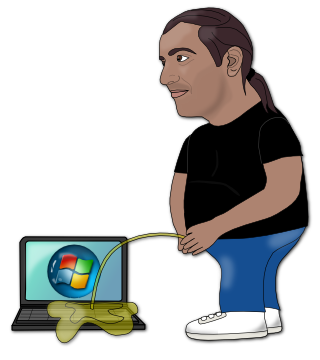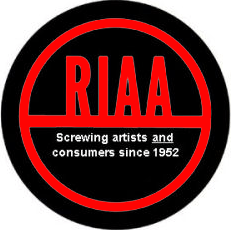
I remember vividly my thoughts as the hype machine for the next great OS from Microsoft was ramping up. As the details began to leak out, it was very apparent that Microsoft was never going to deliver the features it had initialy stated. One by one the news reports that came out were talking of how Microsoft was going to drop this and that in order to deliver Vista on schedule. As the features that really excited people in the industry disappeared, I instantly became skeptical and had nightmarish visions of the dismal Microsoft ME product launch. It seemed odd at the time, and now seems prophetic, that the exact same scenario was playing out.
When Microsoft replaced the rapidly aging Windows 95, they did so skillfully and thoughtfuly. They actualy listened to customers and designed an OS that got rid of almost all of the annoyances that drove people nuts with Windows 95. They takled hardware and driver compatibility and greatly improved upon the overall user experience. Sure, they had to drag many people kicking and screaming towards the new OS, but most of those people are generally eager to resist change of any sort and would have been completely happy to keep using their Commodore 64. Today, you can find those same people extolling the virtues of unwieldy, non-user friendly flavors of Linux. Microsoft shined through with a new OS that most anyone could use and for the most part worked well right out of the box. The ensuing service packs for the OS actually fixed the bugs and security problems. At this point, Microsoft was listening to users and was actually working with vendors.
After a few years, Microsoft decided that it was time to offer a new OS. Instead of looking at Windows 98 and deciding what worked and what didn't. They decided that rather than submit to the long and daunting task of making a product that was a vast improvement over their current OS, someone decided it would be best to do the bare minimum, in order to get a product to market as fast as possible. To do this, it was decided that they would add window dressing (pun intended) to Windows 98 and launch a massive marketing campaign decrying that the new OS was "feature rich" and everyone should be drooling to have it. Of course, the reality was that they ruined a perfectly good operating system with all kinds of bloat that people didn't want, didn't need and frankly, didn't work. The public and the industry were enraged and people shunned the new OS and rallyed behind the old faithful Windows 98 for many years to come.
Feeling the backlash, Microsoft went back to the drawing board and focused on their core business customers while they worked dilligently to build a new OS from the ground up. The end result, after far too many years passed, was what we now know as Windows XP. Sure, this new OS was resisted at every turn by wary consumers and Microsoft responded fairly well with automatic updates and bug fixes that adressed real user issues. Soon, Windows XP became as well liked and well accepted as Windows 98. It had become entrenched as a well accepted standard, that most people agreed, did what it was supposed to and actualy improved the user experience. Microsoft's dillegence had paid off and they again became generally trusted and entrenched with computer users world wide. Then the wheels came off....
Enter into the fray, Windows Vista. Vista was supposed to be a quantum leap forward in OS technology. Microsoft promised to deliver an OS that would make us forget all the improvements made by Apple and even surpass the expectations of Apple's new Leopard OS they had been working on. Some industry articles even predicted that many Linux users were simply disenfranchised Windows users that would willingly migrate back to the shiny new OS from Redmond. They couldn't have been more wrong.
The first apparent problem was that a majority of computer users wouldn't even be able to run Vista without major hardware upgrades or purchasing new systems altogether. The folks from Redmond did their best to assure us that this requirement wasn't entirely due to their new OS, but more of a convenient convergence of Moore's Law. As it turns out, it was more an attempt to please hardware manufacturers and boost lagging new PC sales. If a user wanted to take advantage of the new "features" of the new OS, they were almost certainly in for a serious (read expensive) upgrade.
As the release candidates became available, it became glaringly obvious that Microsoft had dropped most of the meat and potatoes features from their latest offering. In the end, the only real "advatage" they were offering was something called "Aero". The other distinctions from Windows XP were miniscule at best, and they even managed to bungle up some of the things that worked best in XP. At the end of the day, Aero amounted to nothing more than eye candy layered over XP. Coupled with the cost of upgrading your hardware, Microsoft managed to create the ultimate lose-lose situation for the consumer. To add insult to injury, they decided to offer Windows Vista in more flavors than Baskin Robbins ice cream. This great idea (as we later found out) was an attempt to appease, once again, the hardware manufacturers. The manufacturers were mad that "Vista Capable" certification didn't fit well with the price points they wanted to sell their products. It turned out that PCs that sold at the lower end of the price range couldn't run the slick new Aero inerface. So, Microsoft dumbed down Vista to accomodate this situation by removing Aero altogether. This left the lower end Vista versions to be nothing more than bloated versions of Windows XP with a new color scheme.
Based on the public's reaction, as well as the reaction from the industry itself, Vista has been a miserable failure. The lessons Microsoft should have learned from the Windows ME debacle have apparently been ignored or forgotten. This huge oversight has simply given critics of Microsoft, as well as Mac and Linux fanboys everywhere, more ammunition to begin shoveling dirt on Microsoft's coffin. The failure of Vista, coupled with the spread of virtualization, server side apps and open source software, may have signaled the beginning of the end for Microsoft's dominance of the PC desktop. The reality is, that a premature death for Windows as we know it, may be just that. Premature. Microsoft does still have an opportunity to redeem itself, but they will once again have to first overcome the mess they have created. The next OS will have to be truly innovative and bulletproof out of the box. Otherwise, they will find themselves gasping for air as their competitors continue to bury them alive. Don't think for a minute that the public will feel sorry for them, or that Google isn't watching closely as the jockey themselves into position as the heir apparent 600 pounnd gorilla.
Elgan: Was Windows XP Microsoft's last good OS?
 If I had a mouthful of milk right now it would be shooting out my nose as I laugh my ass off. The great folks at Torrent Freak have pulled off a fine piece of "journalism" on this one. As I was reading this story with great interest, it dawned on me ...I was reading a very nice list of the best places to get torrents!
If I had a mouthful of milk right now it would be shooting out my nose as I laugh my ass off. The great folks at Torrent Freak have pulled off a fine piece of "journalism" on this one. As I was reading this story with great interest, it dawned on me ...I was reading a very nice list of the best places to get torrents!









